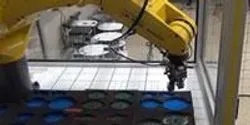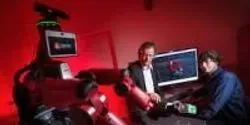Automation

Dr. Nathaniel Hentz is assistant director of the analytical lab at the Golden LEAF Biomanufacturing Training and Education Center (BTEC), where he develops bioanalytical assays in support of the various biomanufacturing processes taught at BTEC. Since 2008, Dr. Hentz has been responsible for developing and teaching undergraduate and graduate courses, industry short courses, and government (FDA and BARDA) training courses, with a focus on assay development and validation, quality control, and liquid-handling performance.

Microplate readers are commonly used in biological research for assay development (39.4%), measurement of biomolecule concentration (34.5%), cell biology (25%), biomarker research (24.0%), and DNA quantification (20% of survey respondents). In addition, microplate readers find use in disease study, IVF, proteomics, PCR setup, and stem cell research. With multiple read modes available and numerous accessories, choosing a microplate reader that meets your current and future needs can prove a daunting task.

INTEGRA has introduced a Three Position Stage for its VIAFLO 96 and VIAFLO 384 handheld benchtop pipettes.

Sandia National Laboratories is tackling one of the biggest barriers to the use of robots in emergency response: energy efficiency.

Artel, the leader in liquid handling quality assurance, announced today that the Society for Laboratory Automation and Screening (SLAS) and Artel are working together to produce a conference short course for the 2015 annual meeting in Washington, D.C. “Liquid Handling Essentials – A Hands-on Workshop Bridging Fundamental Concepts to Practice,” will be presented on Saturday, February 7 from 8:30 a.m. to 4:30 p.m.

Complete this quick survey for a chance to win a $50 Amazon gift card.
Click HERE to take this survey on your mobile device
















